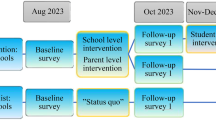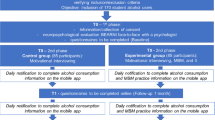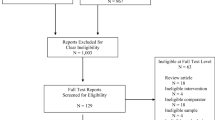Abstract
M-bridge was a sequential multiple assignment randomized trial (SMART) that aimed to develop a resource-efficient adaptive preventive intervention (API) to reduce binge drinking in first-year college students. The main results of M-bridge suggested no difference, on average, in binge drinking between students randomized to APIs versus assessment-only control, but certain elements of the API were beneficial for at-risk subgroups. This paper extends the main results of M-bridge through an exploratory analysis using Q-learning, a novel algorithm from the computer science literature. Specifically, we sought to further tailor the two aspects of the M-bridge APIs to an individual and test whether deep tailoring offers a benefit over assessment-only control. Q-learning is a method to estimate decision rules that assign optimal treatment (i.e., to minimize binge drinking) based on student characteristics. For the first aspect of the M-bridge API (when to offer), we identified the optimal tailoring characteristic post hoc from a set of 20 candidate variables. For the second (how to bridge), we used a known effect modifier from the trial. The results of our analysis are two rules that optimize (1) the timing of universal intervention for each student based on their motives for drinking and (2) the bridging strategy to indicated interventions (i.e., among those who continue to drink heavily mid-semester) based on mid-semester binge drinking frequency. We estimate that this newly tailored API, if offered to all first-year students, would reduce binge drinking by 1 occasion per 2.5 months (95% CI: decrease of 1.45 to 0.28 occasions, p < 0.01) on average. Our analyses demonstrate a real-world implementation of Q-learning for a substantive purpose, and, if replicable in future trials, our results have practical implications for college campuses aiming to reduce student binge drinking.




Similar content being viewed by others
Data or Code Availability
Available from the corresponding author upon request.
References
Agniel, D., Almirall, D., Burkhart, Q., & Others. (2020). Identifying optimal level-of-care placement decisions for adolescent substance use treatment. Drug and Alcohol Dependence, 212 (April). https://doi.org/10.1016/j.drugalcdep.2020.107991
Barto, A., & Sutton, R. S. (1992). Reinforcement learning: An introduction. MIT Press.
Chakraborty, B., Laber, E. B., & Zhao, Y.-Q. (2014). Inference about the expected performance of a data-driven dynamic treatment regime. Clinical Trials, 11, 408–417. https://doi.org/10.1177/1740774514537727
Chakraborty, B., Laber, E. B., & Zhao, Y. (2013). Inference for optimal dynamic treatment regimes using an adaptive m-out-of-n bootstrap scheme. Biometrics, 69, 714–723. https://doi.org/10.1111/biom.12052
Chakraborty, B., Murphy, S., & Strecher, V. (2010). Inference for non-regular parameters in optimal dynamic treatment regimes. Statistical Methods in Medical Research, 19, 317–343. https://doi.org/10.1177/0962280209105013
Coffman, D. L., Patrick, M. E., Palen, L. A., Rhoades, B. L., & Ventura, A. K. (2007). Why do high school seniors drink? Implications for a targeted approach to intervention. Prevention Science, 8, 241–248. https://doi.org/10.1007/s11121-007-0078-1
Cooper, M. L. (1994). Motivations for alcohol use among adolescents: Development and validation of a four-factor model. Psychological Assessment, 6, 117–128. https://doi.org/10.1037/1040-3590.6.2.117
Downey, R. G., & King, C. V. (1998). Missing data in Likert ratings: A comparison of replacement methods. The Journal of General Psychology, 125, 175–191. https://doi.org/10.1080/00221309809595542
Fromme, K., Corbin, W. R., & Kruse, M. I. (2008). Behavioral risks during the transition from high school to college. Developmental Psychology, 44(5), 1497–1504. https://doi.org/10.1037/a0012614
Gilson, K.-M., Bryant, C., Bei, B., Komiti, A., Jackson, H., & Judd, F. (2013). Validation of the Drinking Motives Questionnaire (DMQ) in older adults. Addictive Behaviors, 38(5), 2196–2202. https://doi.org/10.1016/j.addbeh.2013.01.021
Hingson, R. W., Zha, W., & Weitzman, E. R. (2009). Magnitude of and trends in alcohol-related mortality and morbidity among U.S. college students ages 18–24, 1998–2005. Journal of Studies on Alcohol and Drugs, 16, 12–20. https://doi.org/10.15288/jsads.2009.s16.12
Laber, E. B., Carolina, N., Lizotte, D. J., Qian, M., & Murphy, S. A. (2014). Dynamic Treatment Regimes: Technical Challenges and Applications., 8, 1225–1272.
Lee, C. M., Geisner, I. M., Lewis, M. A., Neighbors, C., & Larimer, M. E. (2007). Social motives and the interaction between descriptive and injunctive norms in college student drinking. Journal of Studies on Alcohol and Drugs, 68(5), 714–721. https://doi.org/10.15288/jsad.2007.68.714
Nahum-Shani, I., Almirall, D., & Buckley, J. (2019). An introduction to adaptive interventions and SMART designs in education. In National Center for Special Education Research.
Nahum-Shani, I., Almirall, D., Yap, J. R. T., McKay, J. R., Lynch, K. G., Freiheit, E. A., & Dziak, J. J. (2020). SMART longitudinal analysis: A tutorial for using repeated outcome measures from SMART studies to compare adaptive interventions. Psychological Methods, 25, 1–29. https://doi.org/10.1037/met0000219
Nahum-Shani, I., Ertefaie, A., Lu, X. L., Lynch, K. G., McKay, J. R., Oslin, D. W., & Almirall, D. (2017). A SMART data analysis method for constructing adaptive treatment strategies for substance use disorders. Addiction, 112, 901–909. https://doi.org/10.1111/add.13743
Nahum-Shani, I., Qian, M., Almirall, D., & Others. (2012). Q-learning: A data analysis method for constructing adaptive interventions. Psychological Methods, 17, 478–494. https://doi.org/10.1037/a0029373
Neighbors, C., Larimer, M. E., & Lewis, M. A. (2004). Targeting misperceptions of descriptive drinking norms: Efficacy of a computer-delivered personalized normative feedback intervention. Journal of Consulting and Clinical Psychology, 72, 434–447. https://doi.org/10.1037/0022-006X.72.3.434
NIAAA. (2020). Drinking levels defined. https://www.niaaa.nih.gov/alcohol-health/overview-alcohol-consumption/moderate-binge-drinking
Patrick, M. E., Boatman, J. A., Morrell, N., & Others. (2020). A sequential multiple assignment randomized trial (SMART) protocol for empirically developing an adaptive preventive intervention for college student drinking reduction. Contemporary Clinical Trials, 96, 106089. https://doi.org/10.1016/j.cct.2020.106089
Patrick, M. E., Lee, C. M., & Larimer, M. E. (2011). Drinking motives, protective behavioral strategies, and experienced consequences: Identifying students at risk. Addictive Behaviors, 36, 270–273. https://doi.org/10.1016/j.addbeh.2010.11.007
Patrick, M. E., Lyden, G. R., Morrell, N., & Others. (2021). Main outcomes of M-bridge: A sequential multiple assignment randomized trial (SMART) for developing an adaptive preventive intervention for college drinking. Journal of Consulting and Clinical Psychology, 89, 601–614. https://doi.org/10.1037/ccp0000663
Patrick, M. E., Schulenberg, J. E., O’Malley, P. M., Johnston, L. D., & Bachman, J. G. (2011). Adolescents’ reported reasons for alcohol and marijuana use as predictors of substance use and problems in adulthood. Journal of Studies on Alcohol and Drugs, 72(1), 106–116. https://doi.org/10.15288/jsad.2011b.72.106
Rubin, D. B. (1987). Multiple imputation for nonresponse in surveys. Wiley.
Schomaker, M., & Heumann, C. (2018). Bootstrap inference when using multiple imputation. Statistics in Medicine, 37, 2252–2266. https://doi.org/10.1002/sim.7654
Schulenberg, J. E., Johnston, L. D., O’Malley, P. M., Bachman, J. G., Miech, R. A., & Patrick, M. E. (2019). Monitoring the future national survey results on drug use, 1975–2018: Volume II, college students and adults ages 19–60.
Watkins, C. J. C. H. (1989). Learning from delayed rewards. University of Cambridge.
Acknowledgements
Thank you to Bibhas Chakraborty for sharing code to select m for the m-out-of-n bootstrap.
Funding
Data collection and manuscript preparation were supported by the National Institute on Alcohol Abuse and Alcoholism (R01AA026574, PI M. Patrick). The study sponsors had no role in the study design, collection, analysis or interpretation of the data, writing of the manuscript, or the decision to submit the paper for publication. The content is solely the responsibility of the authors and does not necessarily represent the official views of the study sponsor.
Author information
Authors and Affiliations
Corresponding author
Ethics declarations
Ethics Approval
This study was approved by the University of Minnesota Institutional Review Board (No. STUDY00006421). The procedures adhere to the tenets of the Declaration of Helsinki.
Consent to Participate
Informed consent was obtained from all participants during the baseline survey (August 2019).
Conflict of Interest
The authors declare no competing interests.
Additional information
Publisher's Note
Springer Nature remains neutral with regard to jurisdictional claims in published maps and institutional affiliations.
Supplementary Information
Below is the link to the electronic supplementary material.
11121_2022_1371_MOESM1_ESM.docx
Supplementary file1 Technical details: Selection of Stage 1 tailoring variable and m-out-of-n bootstrap confidence intervals for value comparison with control. (pdf). (DOCX 24 KB)
Rights and permissions
About this article
Cite this article
Lyden, G.R., Vock, D.M., Sur, A. et al. Deeply Tailored Adaptive Interventions to Reduce College Student Drinking: a Real-World Application of Q-Learning for SMART Studies. Prev Sci 23, 1053–1064 (2022). https://doi.org/10.1007/s11121-022-01371-7
Accepted:
Published:
Issue Date:
DOI: https://doi.org/10.1007/s11121-022-01371-7




